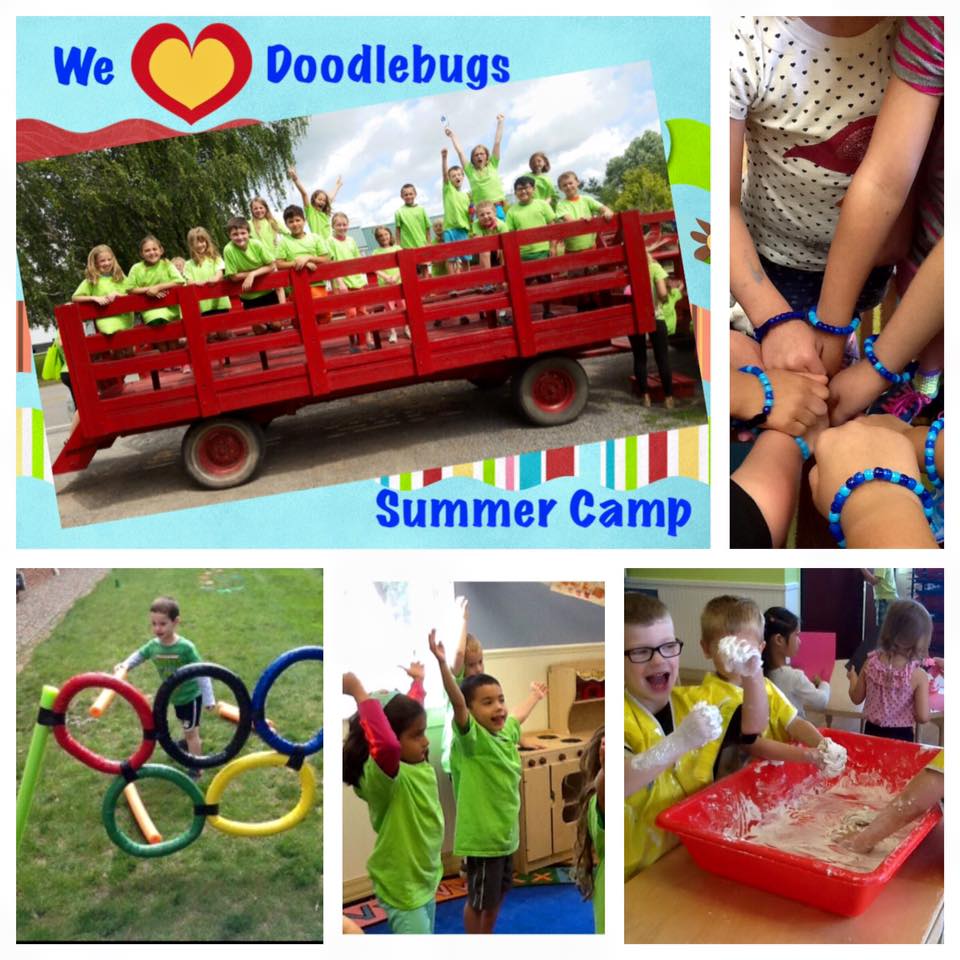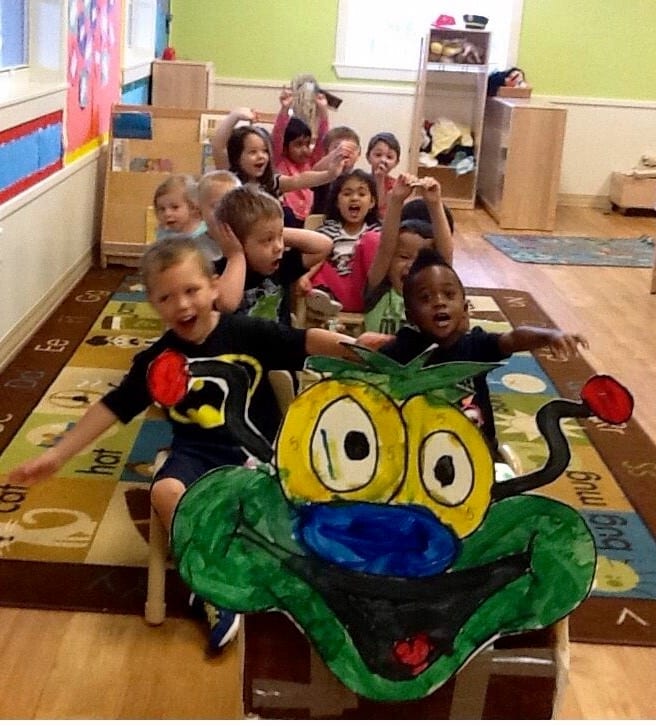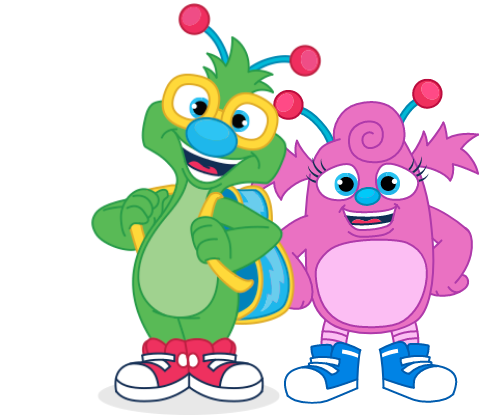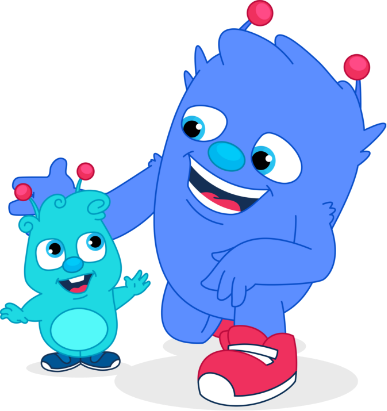May 23, 2016
Differentiating Spirit Week
*Please note* This blog is intended for campers (ages 3+) but toddler teachers may find some ideas easy to adapt. Toddler teachers are also encouraged to review the toddler-specific differentiation ideas found in the curriculum notes.

Spirit Week is a prime opportunity to build community, set and reinforce expectations, and nurture positive relationships between peers. Through
cooperative activities you’ll have plenty of opportunities to facilitate conversations in kindness, empathy, and unconditional support for one another. We’ll be playing competitive games, forming teams, helping each other towards common goals, and having a ton of FUN all along the way! For our NY Campers – It’s also graduation week! What a perfect time to show your doodle spirit! Use the suggestions below to extend activities within the curriculum:
Designing Cooperative Group Projects
- The thematic “Instrument Workshop” or “Secret Sound Station” are opportunities to form cooperative team building projects. Consider challenging a small group to work together and build a giant guitar (or bass) with a utility box. Help them decide on project roles. For example you may need:
- An engineer/designer to draft the plans and present them to the team
- A builder (or builders) to bring the plans to life by working with the cardboard to make a guitar frame
- A music specialist to attach the strings and test it out
- An artist to add painted or drawn details to the instrument
Cheering Section
 This activity lends itself to a variety of learning styles. Aspects of it can appeal to both male and female campers:
This activity lends itself to a variety of learning styles. Aspects of it can appeal to both male and female campers:
- Gross motor, kinesthetic campers will thrive in jumping, dancing, flipping, throwing, choreographing cheers, and building props (signs, pom poms, giant #1 fingers out of cardboard, etc.)
- Visual learners may enjoy designing a backdrop or recording the cheers using technology.
- Auditory learners may relish in the chance to get to write the cheer and design the jingle!
Doodle Look-Alike Day
- This day is intended to boost morale center-wide by complimenting the special ways we build each other up! Perhaps one of your campers dresses up like your opener because he/she always smiles and greets them when they come to camp. This appreciation is even more powerful when their reasons for dressing up are put into words by documenting their attire with a captioned photo or an illustrated story! Here are some more ways to do just that:
- Provide visual/art driven campers with a black and white photo of themselves in their attire to attach to the easel to paint with water colors or draw on with crayons/colored pencils at a table top. Invite them dictate their thoughts and record on a small square of colorful construction paper to attach to the photo.
- Create an electronic scrapbook page using the Scrap It! App. Children can upload their photo and then add text, stickers, and even a voice recording! These can be printed and would also be an awesome addition to the classroom scrapbook. Students who need to build competence with the app can work with a peer who has more mastery – their skills are strengthened in the process of “teaching” the app too!
Helpful Hints for Managing Competitive Friends
“When we introduce the competitive element into a situation it creates a sense of external urgency and drama. Competition brings a variable into the equation that shifts the participants’ attention from the task itself to attention to the cost of their performance in the task (Johnson & Johnson, 2006; Reeve & Deci, 1996).”
The last thing we need to create in early childhood is a sense of anxiety or drama within a peer group. Therefore, as teachers, we need to lead the way and control this stress at camp. After all – it’s suppose to be FUN! Below is some food for thought to help you manage this week!
In Healthy Competition
o The primary goal is fun, the competition has a short duration and is characterized by high energy, there is no long-term effect from the episode, all individuals or groups see a reasonable chance of winning.
Examples include: trivia contests, short-term competitions for a solely symbolic reward, lighthearted challenges between groups where there is no reward
In Unhealthy Competition
o The learning task is characterized as a means to an end (winning the competition), winners are able to use their victory as social or educational capital at a later time, competition implicitly or explicitly rewards the advantaged students, over time students develop an increasingly competitive mindset.
Examples include: long-term point systems, playing favorites, awards for skill-related performance.

 1.866.668.5111
1.866.668.5111  6:30 am - 6:00 pm
6:30 am - 6:00 pm 
 Give a Happy High Five!
Give a Happy High Five!


